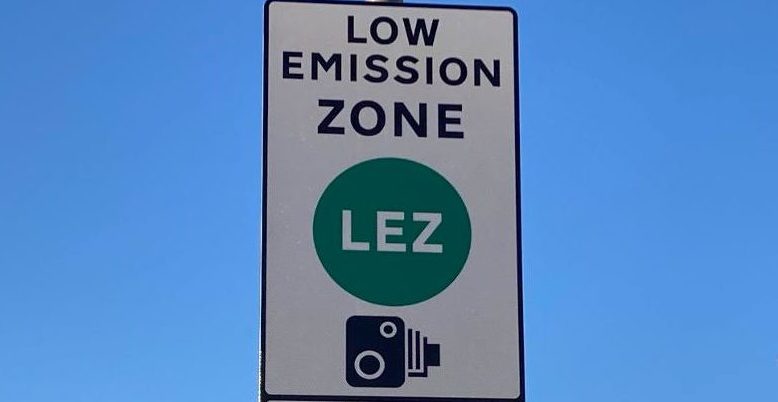
Photo: LEZ_statutory_signage_-at_Saltmarket_Clyde_Street
Court rejects legal challenge to Glasgow’s Low Emission Zone
10 November 2023
by Christopher Carey
A legal challenge to stop the operation of Glasgow’s Low Emissions Zone (LEZ) has failed.
The case, brought by a car repair firm operating within the zone, said the restrictions on high-polluting vehicles would be detrimental for business.
Following a two-day hearing in Edinburgh, the Court of Session rejected criticisms levelled at the scheme, saying the grounds of challenge were “not well founded”.
Councillor Angus Millar, Glasgow city convenor for transport and climate, welcomed the decision.
“This decision reflects that Glasgow’s LEZ is an important public health measure, aimed at bringing down harmful levels of air pollution within the city centre after decades of unacceptable non-compliance with legal standards.
“A strong and substantial body of work underpinned our decision to roll out the LEZ, and we’ve always had the utmost confidence in the lawfulness and proportionality of the scheme given its clear, scientific evidence base.”
How it works
The second phase of the scheme was rolled out in June 2023, with penalties of £60 (US$73) – halved to £30 if paid early – for non-compliant vehicles.
Petrol cars need to have engines at the Euro 4 standard, which generally applies to vehicles registered after 2006.
Diesel-powered cars and vans need to be at the Euro 6 standard, which mainly applies to vehicles registered after September 2015.
Blue Badge holders, emergency vehicles, motorbikes and mopeds are exempt from the charge, and local residents who live in the zone have an extra year to comply.
Automatic Number Plate Recognition (ANPR) cameras linked to a national vehicle licensing database are used to enforce the scheme. When a non-compliant vehicle is detected in the zone, a charge will be issued to the registered owner.
Over 20,000 fines have been issued to drivers since the scheme started in June.
Health impacts
Glasgow is the first of four major Scottish cities to enforce a low emissions scheme to reduce air pollution, with Aberdeen, Edinburgh and Dundee set to follow in 2024.
The first phase of Glasgow’s LEZ – which solely affected buses – was introduced at the end of 2018.
The council says that since then, the city has seen a year-on-year improvement in the proportion of low or zero emission buses servicing the city centre.
“Air pollution creates and exacerbates people’s health conditions and contributes to hundreds of deaths in Glasgow every year, worsening health inequalities and disproportionately affecting the most vulnerable,” added Councillor Millar.
“Both short- and long-term exposure can lead to a wide range of diseases, including asthma and respiratory infections, with evidence also now emerging of links to other conditions including Type 2 diabetes and dementia.
“[This] ruling by the court means we can continue in our commitment to improving air quality to create a safer and more pleasant environment for everyone who lives or spends time in Glasgow city centre.”













